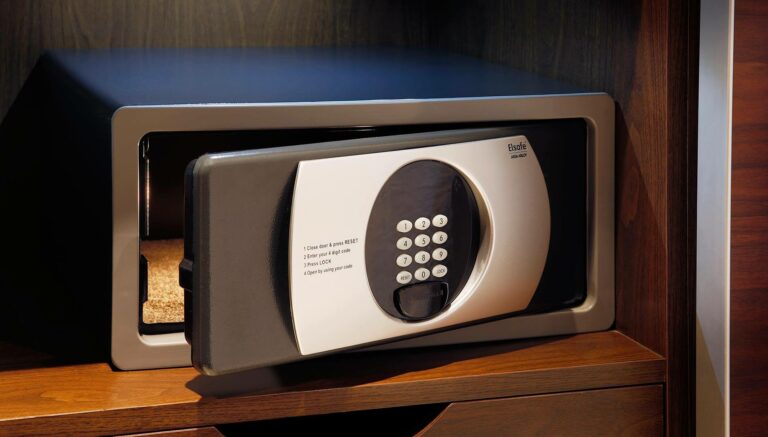Managers or company heads undeniably have a lot on their hands to ensure that the team members meet their individual and group expectations. Every member plays a crucial part in completing the puzzle, one that can’t be overlooked. Therefore, it’s necessary to check, remind, and instill in each staff member their responsibilities and what they should be doing to fulfill them.
When everyone is aware and accountable for their duties, functions, and responsibilities, expectations are realistic, mistakes are brought forth to the right individuals, and an overall sense of unity and coherence becomes the core of daily operations for the team as a whole.
This read gives insights into what it takes to build and increase a culture of staff accountability in the workplace.
Have Each One Wear A Name Badge
Wearing a name badge may seem like a simple change, but it makes a difference in achieving individual staff accountability. With a name badge, every staff member can be positively and clearly identified by co-workers and clients.
For the latter, should there be any problem they’d experience with a particular transaction, it’s easier to identify whom to approach to try and solve it. The same applies when a staff member commits an erroneous transaction on purpose or by accident. There is no need to point fingers to determine who is responsible.
Unlike a company ID that usually comes with smaller fonts, a name badge is more visible. This isn’t meant to replace a company ID for entry and exit purposes within the office premises, but rather, for purposes of increasing staff accountability, a custom badge works as a better solution. If you’ve been contemplating it, consider this a green light to create custom name badges for your business.
Set Clear Expectations
Staff members can’t hold themselves accountable for anything if they don’t know what’s expected of them. Each task’s expected standards and results should be properly laid down to avoid any gray areas.
Teams that don’t have clear expectations don’t just suffer from low staff accountability. Toxic employee actions can also arise, such as:
- Filing frequent unfair dismissal claims;
- Publicly airing grievances against managers and the company instead of resolving conflicts privately;
- Causing frequent conflicts between team members.
Those three situations should be clear-cut enough to understand why setting clear expectations shouldn’t be shrugged off. You can aim to start today by:
- Conducting one-on-one conversations to discuss the progress of specific projects;
- Holding weekly or monthly meetings to define targets, key performance indicators (KPIs), and objectives;
- Providing meaningful feedback to each staff member, both good and bad.
There are many ways to set clear expectations, but the three outlined above can help you get started. Once in the process, your team can find other suggestions that apply to your company, which are also worth exploring.
Lead By Example
Accountability starts with every individual, including you, the manager. There’s no leading a team to success if the head isn’t practicing what they preach. Remember, you’re not just there to give orders to the team. You’re also there to play your part and be accountable so the team you lead is on the path to daily success and goal-ticking.
An excellent way to show this is by taking full responsibility when a problem within the team arises instead of blaming a specific staff member for this. It can be hard to speak up and be accountable for actions, but remember, as the head, each of their successes and failures is yours, too. If the latter is a consistent problem, then perhaps it’s time to re-check your team management to see whether or not you’ve been amiss in accountability yourself.
Be Very Specific When Assigning Tasks To Individuals
It’s not enough to say, ‘We need to complete x number of orders for Client A at the end of this week.’ Because you intend to increase staff accountability, it’s better to take a more specific approach toward assigning tasks to individuals. That way, every staff member can create goals to achieve the metrics or KPIs assigned to them.
With a specific assignment of tasks, it’s easier to trace who worked on particular assignments. Should any modifications be needed, those can be made by the same staff member who worked on the project for efficiency and higher accuracy.
How to Deal With Staff Members Who Are Not Accountable
If you have a staff member who is not accountable, it’s crucial to take action. The longer you wait, the more likely the problem will get worse.
Here are some additional tips on how to deal with staff members who are not accountable:
- Talk To The Staff Member Privately: The first step is to talk to the staff member privately about your concerns. Be specific about what you have seen and how it is affecting the team.
- Offer Support: If the staff member is struggling, offer them support. This could include providing them with training, resources, or simply being there to listen.
- Take Disciplinary Action If Necessary: If the staff member continues to be unaccountable, you may need to take disciplinary action. This could include a warning, suspension, or termination.
It’s important to remember that everyone makes mistakes. By following these tips, you can help to create a culture of accountability in your workplace.
The Bottomline
If you think your team struggles with accountability, worry not; you’re not alone in that. This is a common struggle across various businesses, but there are solutions. As you can now gather from the tips above, many things can be done to turn this situation around. When successful, you’ll have a team that follows through on each portion of a teamwide commitment, all while understanding and realizing that every member is responsible for high-quality work each working day.












